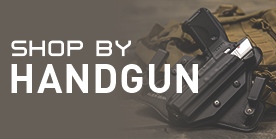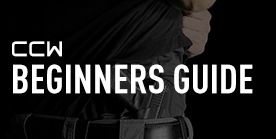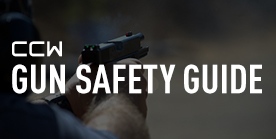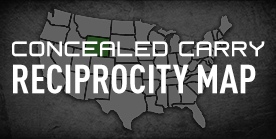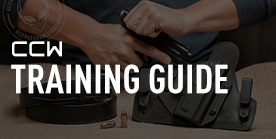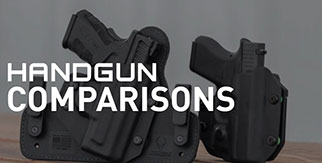
Hunters Education & Concealed Carry
Whether intended for nature’s foul or fowl, a goal of hunter safety is to enforce a sense of dutiful respect for weapons intended to feed families and defend homes.
What was once for subsistence is now heavily for recreation, but the skills and morals behind hunting still remain important educational tools and serve today’s potential concealed carriers by reaffirming gun safety and an unyielding respect for life -- dangerous or otherwise.
That understanding is reflected in multiple states’ concealed carry permit licensing. Handgun competency is a component in CCW permit applications, but in some places it may be satisfied by a documented hunter education course.
The importance of hunter education as an extension of gun safety
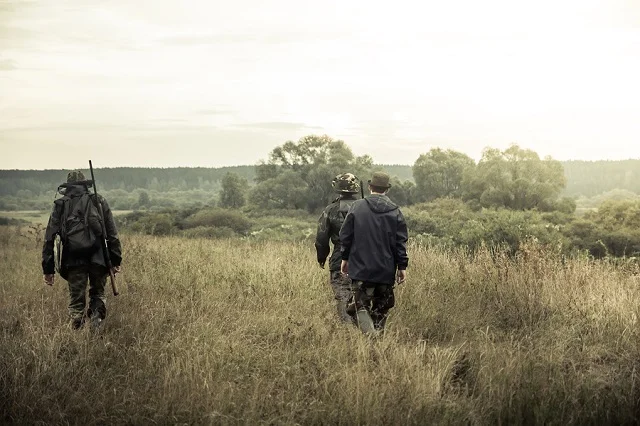
Hunter education is widely practiced today, much the same as it was thousands of years ago, increasing survivability in the wild and responsible use of weapons intended to kill.
In the 2008 publication “Does Hunting Have a Place in the Twenty-First Century?” the authors tried to reconcile the social, legal and ethical roles of hunting -- a prehistoric staple of life prior to the adoption of farming as a source of food in 8500 BC.
Whether modern hunters agree or disagree, according to the authors, society’s reliance on hunting as a food source has decreased, protection from wild animals is less necessary and there is a disconnection between the modern family and how the food (meat or otherwise) ended up on their plate.
Hunting, however, in the modern day closes that disconnection, encourages respect for life, hones situational awareness and develops a defensive mindset, all while the hunter invests in gun safety principles, techniques and training.
The authors also discuss the groups for and against hunting. Those for the activity argue that it requires skill, patience and knowledge. It also serves an important role in wildlife conservation and management.
Hunting license fees aid management, law enforcement, research and educational programs conducted by state wildlife agencies. Additionally, in 1998, federal excise taxes on guns, ammunition and archery equipment provided more than $150 million annually, which is redistributed partially to state hunter education programs.
In George Frison’s Survival by Hunting book, the author speaks about the role of hunting in ranching communities of the Rocky Mountain West during the 1930s’ depression and drought. Hunting, as a role in the yearly cycle, at a young age meant being afforded the privilege of owning and using a firearm, and bestowing “definite and unbending rules” about how, when, why and where to use it.
Frison was taught the remarkable effects hunting, and by extension using a firearm, could have, both on the target and on those around it.
A hunters safety certificate may qualify as firearms training for a ccw permit
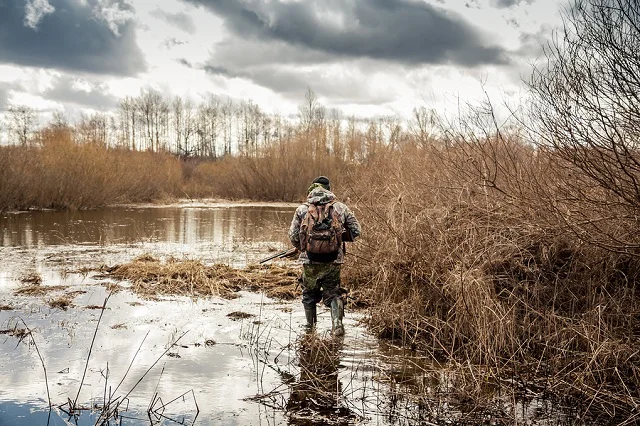
Many concealed carry permits require demonstration or documentation of competency with a firearm, however several states allow a valid hunter safety certification to satisfy the firearms competency requirement.
Licensed hunters should check their state concealed carry permit application requirements to see if they are afforded this benefit.
Wisconsin’s Department of Justice allows CCW applicants to submit a copy of their hunter education certificate from the state hunters ed. program, or a “substantially similar program” in another state, as a form of firearms training. The out-of-state program must be recognized by the Department of Natural Resources. According to Virginia law, an application for a concealed handgun permit requires the potential concealed carrier to demonstrate handgun competence, and the first item on the list of acceptable documentation is a hunter education or safety course approved by the Department of Game and Inland Fisheries. Like Wisconsin, Virginia accepts certificates from similar agencies in other states.
Idaho concealed carry permits generally require the applicant to demonstrate familiarity with a firearm. A hunter education or safety course approved by the Idaho Department of Fish and Game, or a similar out-of-state agency, satisfies the requirement for basic Idaho concealed permits, enhanced permits require additional care and attention.
Maryland Handgun Qualifications License -- which affords the right to purchase, rent or receive a handgun in Maryland -- applicants may be exempt from the training component if they have a certificate of firearms competency and hunter safety from the Maryland Department of Natural Resources, according to Maryland State Police.
An applicant for an Arizona concealed carry permit must also demonstrate competence. A hunter education or hunter safety course may satisfy that requirement, provided the course is approved by the Arizona Game and Fish Department, according to Arizona laws.
A county sheriff in Oregon will issue a state concealed handgun license once the applicant, as in other states, demonstrates handgun competence, and may do so with any hunter education or hunter safety course that is approved by the Oregon State Department of Fish and Wildlife, according to Oregon Legislature.
At times, a hunter’s license may even serve well when owning firearms in general.

According to the State of California Department of Justice, when purchasing or obtaining a firearm from a California firearms dealer, a firearms safety certificate (FSC) must be presented, however a valid hunting license may replace the FSC for long guns.
Those 15 years or older in Massachusetts who want to possess, carry and transport firearms, ammunition and feeding devices must first obtain a firearms license, but the training component for the license may be fulfilled by a certificate from the Division of Fisheries and Wildlife. That, however, is contingent on local police departments, according to the Massachusetts Division of Fisheries and Wildlife.
Hunter safety or hunter education course structure and the traits that transfer
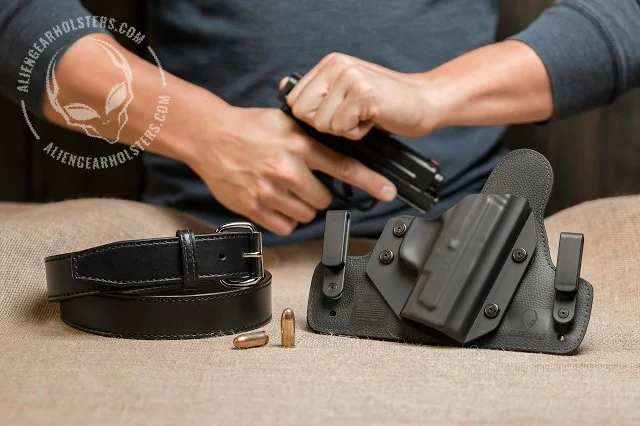
A hunter safety or hunter education course will provide students with knowledge and practical experience in safe, ethical hunting. Many courses cover firearms, ammunition, safety procedures, techniques, and first aid
Still more include a certain amount of live-fire field experience. The USA branch of the International Hunter Education Association (IHEA) proposes standards for hunter education courses as well, including safe firearm handling , field practices, laws and personal responsibility.
IHEA standards calls for an understanding of the mechanics behind handling a firearm, including major causes of incidents, basic rules of gun safety, parts of the firearm, differences between types of firearms, common firearm actions, parts of ammunition, proper ammunition and performance characteristics of ammunition.
Furthermore, IHEA also enforces understanding of passing firearms safely, failure to fire, loading and unloading firearms, crossing obstacles, shooting skill, eye and ear protection, transporting firearms, cleaning firearms and storing firearms.
Out in the field, IHEA calls for recognizing how to handle firearms in hunting situations, proper field carries, safe zones of fire, barrel obstructions, shot placement, responsible conduct and avoiding alcohol and drug consumption.
The structure and content of a hunter education may serve as a valuable tool for those seeking to concealed carry, though there are definite differences between both the practices and the circumstances that surround each. Certain mindsets in the realm of hunting may not be at all safe, legal or responsible when applied to carrying a concealed weapon for self-defense.
Training in both will be mutually beneficial, but reliance on one practice to completely fuel the knowledge and understanding of the other could be a dangerous crutch.
Carry and hunt responsibly and legally.
 |
About The Author Jake Smith (@notjakesmith) is a copywriter in his final year of studying public relations and apparel at the University of Idaho. |


